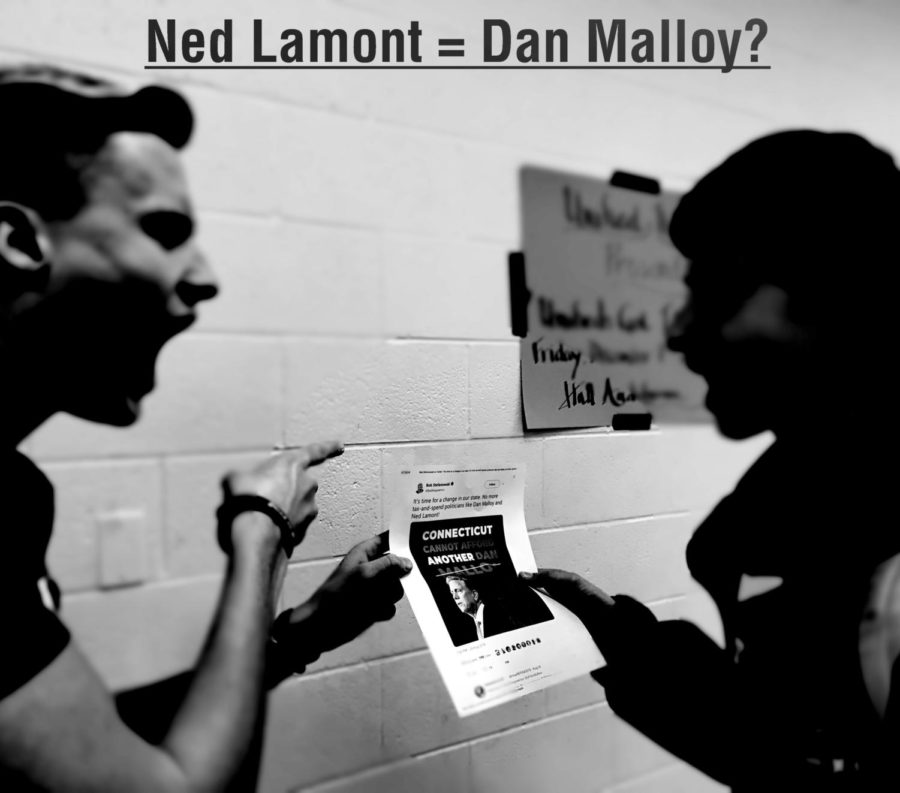Is Ned Lamont Dan Malloy 2.0?
Edward Miner “Ned” Lamont Jr. is the worst thing to happen to Connecticut this decade, or so people think. A narrow victory of 42,000 votes has made him the next governor of Connecticut. The general consensus of Ned Lamont is that he is the next Dan Malloy, and that has both good and bad connotations. His morals are very similar to Dannel Malloy, who was the governor for eight years. A question you might ask is how are they, or aren’t they similar?
Ned Lamont is to be sworn in as the 89th governor of Connecticut, and received an official endorsement from Dannel Malloy, the current governor, in the months leading up to the midterm elections in November. One difference between him and Stefanowski; the Republican nominee for the governor of Connecticut and Lamont’s rival, is Lamont planned to keep state income tax (why this is important and how this could affect the state will be explained later on), and instead do away with property tax (the money taken out of your annual income versus the money you are taxed for owning property in Connecticut) specifically for the middle class. Moreover, his plans include tightening restrictions on firearms, improving overall support of veterans, make educators compromise instead of leading lengthy debates on how to properly educate their children. As well as electronic tolling, finetune emissions, recycling, and waste regulations. One significant difference between Lamont and Malloy is that Lamont wants to explore the possibility of legalizing marijuana.
Another difference is that Lamont believes in the idea of tolls, but not in the same way that Malloy does. In an article written by the Hartford Courant in July, Lamont says “we don’t need a study to know that our transportation system is a mess.” Ned Lamont’s plan suggests budgets of at least twice the magnitude at some point during his term. This would affect most, if not all aspects of life, in Connecticut. With Lamont’s plan, approximately 44% of the state’s total budget would need a new income source, or require severe cuts. 44% of the state’s budget equates to about $8 billion dollars, possibly creating a scenario like in 2017 where many towns faced budget cuts of up to 1.4 million. West Hartford, for instance, lost $1 million in this plan. On the other hand, if Stefanowski’s idea of phasing out the state income tax were to go into effect, then approximately 25% of the state’s total budget according to a chart of CT tax revenue from 2011 (seen below) would need a new source of income about $4-5 billion dollars.
One interviewee who we will call Toby (they requested anonymity in their interview) thinks Lamont is a turn for the worst. “If we keep putting the same party in office, the result will be the same.” An analogy he used to describe the recent political course of Connecticut can be described like so: You go to a steakhouse, and you order a steak. You like it so much, the restaurant makes you another one. You like that one too, but then they bring out another one. This continues until you grow sick of the steak you have been eating, and physically and/or mentally can’t eat any more of it. It is likely that this analogy alludes how the Democrats are viewed within Connecticut. Toby went on to say, “I want for our children to grow, but in present course, our children will not be able to grow.”

The breakdown of revenue from taxes for the state of Connecticut in 2011.
Another interviewee, Mrs. Suretha Koontz of the Hall Attendance Office, has a different mindset. “I think [Ned] will attract more people, companies, and close [the state] deficit.” Mrs. Koontz would’ve had faith in any other candidate, “but the election was bigger than what was going on in Connecticut.” This kind of thinking isn’t too far off the mark. Since the start of the current president’s term, many Republican candidates for positions of power in government have been revealed to committing a serious crime, or have been extremely scrutinized.
The last interviewee, a service clerk at Walgreens has a more neutral approach. The clerk (who we will refer to as Erin because they also requested anonymity in this article) doesn’t care so much about politics as long as whoever is in office focuses on people instead of money. Erin says the promises they make during their campaigns are all but empty: “You don’t know until they do it.” Considering both plans, in conclusion, both plans were lose-lose situations, but Ned Lamont’s situation will be a larger overall loss.











